
Everything About Hair Loss Symptoms, Causes & Treatment for Men & Women
Introduction
Hello everyone, I am Dr. Ruchir Shah, a dermatologist with a special interest in tele-dermatology. Together with my colleague, Dr. Karma Patel, we have consulted with many patients online who are dealing with various forms of hair loss.
One of the most common questions we hear is:
“What are the symptoms and causes of hair loss?”
The truth is, hair loss can happen to anyone, and it may be linked to genetics, hormones, medical conditions, lifestyle, or even stress. Identifying the signs early and understanding the causes can make a big difference in treatment outcomes.
In this blog, we’ll cover in detail:
- What are the common symptoms of hair loss?
- What are the causes of hair loss in men and women?
- Which illnesses can trigger hair loss?
- What are the best treatments and remedies for hair fall?
- And when should you consult a dermatologist for hair loss?
Our goal is to give you a clear, dermatology-backed overview of hair loss so you can take the right steps toward healthier, stronger hair.
If you’re worried about hair thinning or sudden shedding, you can explore our Hair Loss Treatment Online Consultation service. We offer both photographic and video consultations with experienced dermatologists. For first-time users, you may even be eligible for a free photographic consultation - check our blog post Free Dermatologist Online Consultation for more details.
Understanding Hair Loss
Hair loss, also known as alopecia, affects both men and women and can be triggered by multiple factors, including genetics, hormonal changes, medical conditions, medications, or even natural aging. Understanding the symptoms of hair loss and the causes of hair loss is essential for timely treatment and prevention.
Hair Loss Symptoms
Identifying the signs of hair loss early can help you seek treatment before the condition worsens. Common hair loss symptoms include:
- Gradual Thinning on Top of the Head - The most common type of hair loss in both men and women. Men may notice a receding hairline, while women often see thinning at the crown.
- Circular or Patchy Bald Spots - Sudden, coin-sized bald patches are usually linked to alopecia areata, an autoimmune condition.
- Sudden Loosening of Hair - Triggered by stress or illness, large clumps of hair may come out during combing or washing. This is known as telogen effluvium.
- Full-body Hair Loss - Certain medical treatments, like chemotherapy or conditions such as autoimmune disorders, can cause total hair loss.
Hair Loss Symptoms in Women vs. Men
While hair loss symptoms appear in both men and women, the patterns and severity are often different. Below is a quick comparison:
| Symptoms | Women | Men |
| Thinning Pattern | Diffuse thinning across the scalp | Thinning at temples and crown |
| Hair Parting | Widening of the central part | Receding hairline |
| Bald Patches | Rare, usually overall volume loss | Common, especially at crown and front |
| Hair Texture | Brittle, fragile strands, increased breakage | Thinner, weaker strands over time |
| Scalp Visibility | Scalp becomes more visible without complete baldness | Scalp shows prominent bald spots |
Key Difference
The symptoms of hair loss in women are usually more subtle, with overall thinning, widening of the parting, and fragile hair strands. Complete baldness is rare in women. In contrast, hair loss symptoms in men often present as a receding hairline, thinning at the crown, and noticeable bald patches that can progress to complete baldness over time.
Causes of Hair Loss
There are several common causes of hair loss. Some are temporary, while others are progressive:
1. Genetics & Hormonal Changes (Androgenetic Alopecia)
The most frequent cause, also called male-pattern baldness or female-pattern baldness. It is inherited and progresses gradually over time. Pregnancy, childbirth, menopause, or thyroid disorders may trigger hair loss symptoms.
2. Medical Conditions
- Alopecia Areata - Patchy bald spots due to autoimmune reaction.
- Scalp Infections - Such as ringworm (tinea capitis) or folliculitis.
- Trichotillomania - A compulsive hair-pulling disorder.
3. Medications and Treatments
Drugs for cancer, arthritis, depression, heart disease, high blood pressure, or birth control can cause shedding as a side effect.
4. Stressful Events
Both physical and emotional stress can trigger temporary hair shedding, though it usually resolves once the stress subsides.
Wondering if stress could be behind your hair fall or hair loss? Check this out: Can Stress Cause Hair Loss? Learn the Causes & Get Expert Advice from Dr. Ruchir Shah
Click here - To know more about the hair loss causes, same English blog in Hindi language ( Baal Jhadne Ke Karan In Hindi)
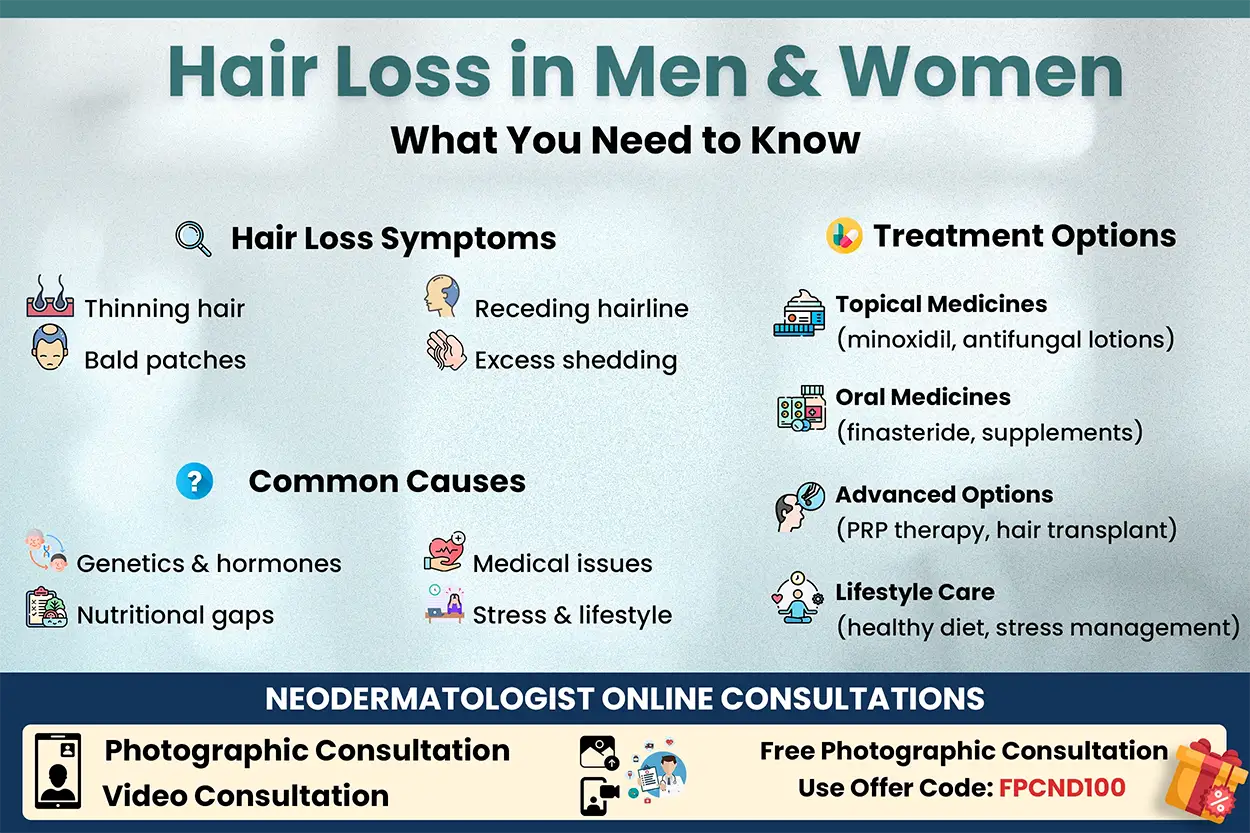
Unique View: How Causes of Hair Loss Differ in Men vs. Women
| Aspect of Cause | Men | Women |
| Age of Onset | Early 20s–30s, gradual thinning starts at hairline & crown | Often after 30s, but peaks around pregnancy/menopause |
| Progression Pattern | Receding hairline → bald spots on crown → full baldness | Diffuse thinning across the scalp, widening the hair part, and rarely complete baldness |
| Hormone Link | Strong link to DHT (male hormone) | Estrogen drop, progesterone imbalance, thyroid & PCOS issues |
| Nutritional Triggers | Less prominent, but protein/zinc deficiency worsens baldness | Iron, Vitamin D, and B12 deficiencies are strongly linked |
| Reversibility | Genetic causes are usually irreversible without treatment | Many cases (hormonal, nutritional, postpartum) are reversible with correction |
Treatment Options for Hair Loss
Effective hair loss treatments depend on the underlying cause. Options include:
1. Medications
- Minoxidil (2% or 5%) – Over-the-counter topical solution applied to the scalp to stimulate growth.
- Finasteride - Oral prescription medication for men to slow down hair fall.
2. Advanced Medical Procedures
- Hair Transplant Surgery - Moving hair follicles from dense areas to balding spots.
- Platelet-Rich Plasma (PRP) Therapy - Your own plasma is injected into the scalp to stimulate follicles.
- Low-Level Laser Therapy - Helps both men and women regrow hair.
- Scalp Reduction Surgery - Removes bald areas and stretches areas with growth.
3. Non-surgical Options
- Wigs and Hairpieces - Effective for extensive or permanent hair loss.
Lifestyle and Home Remedies
To manage and reduce hair loss symptoms, try the following:
- Eat a nutrient-rich diet with enough iron and protein.
- Practice gentle hair care – avoid harsh treatments and chemical styling.
- Avoid tight hairstyles that pull on the scalp (ponytails, braids).
- Manage stress with yoga, meditation, or exercise.
- Quit smoking - it restricts blood flow to the scalp and damages follicles.
When to See a Dermatologist
Seek medical advice if you experience:
- Unusual patterns of hair loss at a young age.
- Sudden hair fall without a clear reason.
- Itching, pain, or redness on the scalp.
- Hair loss that continues despite home remedies.
Book your online dermatology consultations today and get expert advice from certified dermatologists without leaving home.
Get Expert Advice on Hair Loss - Online!
Hair loss can be caused by genetics, stress, diet, or medical conditions, and understanding the exact reason can be overwhelming. Instead of self-diagnosing, consult with an experienced dermatologist for the right guidance.
Try NeoDermatologist’s Online Services:
- Free Photographic Consultation: Upload clear photos of your scalp and receive a customized prescription without the need for a video call.
- Video Consultation: Speak directly with a dermatologist to discuss your symptoms, possible causes of hair loss, and treatment options.
Our experts can help identify whether your hair loss is due to hormonal changes, stress, nutritional deficiencies, or other causes, and guide you with the best treatment plan.
Need quick help? Start an instant chat with SkinMate, our AI-powered Dermatology Nurse, on WhatsApp. Get fast answers about hair loss symptoms, causes, and treatment options.
Click here to know more about SkinMate, our AI-powered Dermatology Nurse.
Conclusion
It’s important to remember that not all types of hair loss are completely preventable. However, seeking early treatment can significantly slow down progression, prevent further loss, and in many cases, encourage regrowth. Consulting a dermatologist or a healthcare professional who specializes in hair loss ensures that you receive personalized advice and treatment tailored to the underlying cause of your condition.
If you are looking for a different service, please click on: Acne Treatment, General Skin Consultation, Inner Parts Itching Treatment, Vitiligo Treatment, Psoriasis Treatment, Scabies Treatment, Urticaria Hives Treatment, Ringworm Treatment.
Explore More: Check out other hair loss and hair fall-related blog posts:
- The Importance of Hair Fall Treatment & Control Methods: Restoring Confidence and Health
- How To Stop Hair Fall - Consult a Dermatologist Online For Effective Solutions
- Hair Loss and Diet: Nourishing Your Locks from within
Thank You.
M.B., D.V.D. | Registration No.: G-41460
A dermatologist specializing in tele-dermatology, offering expert care for skin, hair, and nail concerns. With extensive clinical experience, provides effective treatments for acne, hair fall, eczema, vitiligo, hives, scalp issues, ringworm, fungal infections, and more - all accessible through convenient online consultations.
 Hin
Hin En
En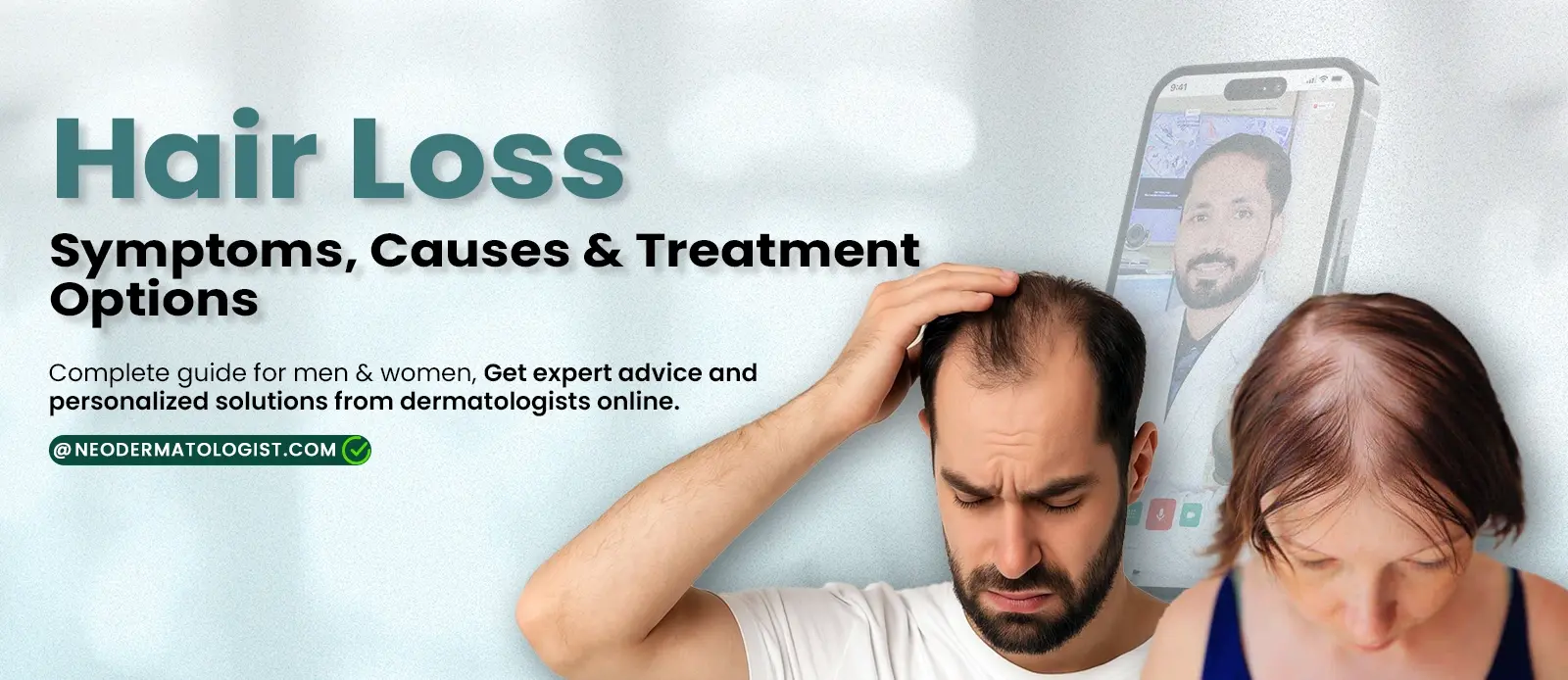
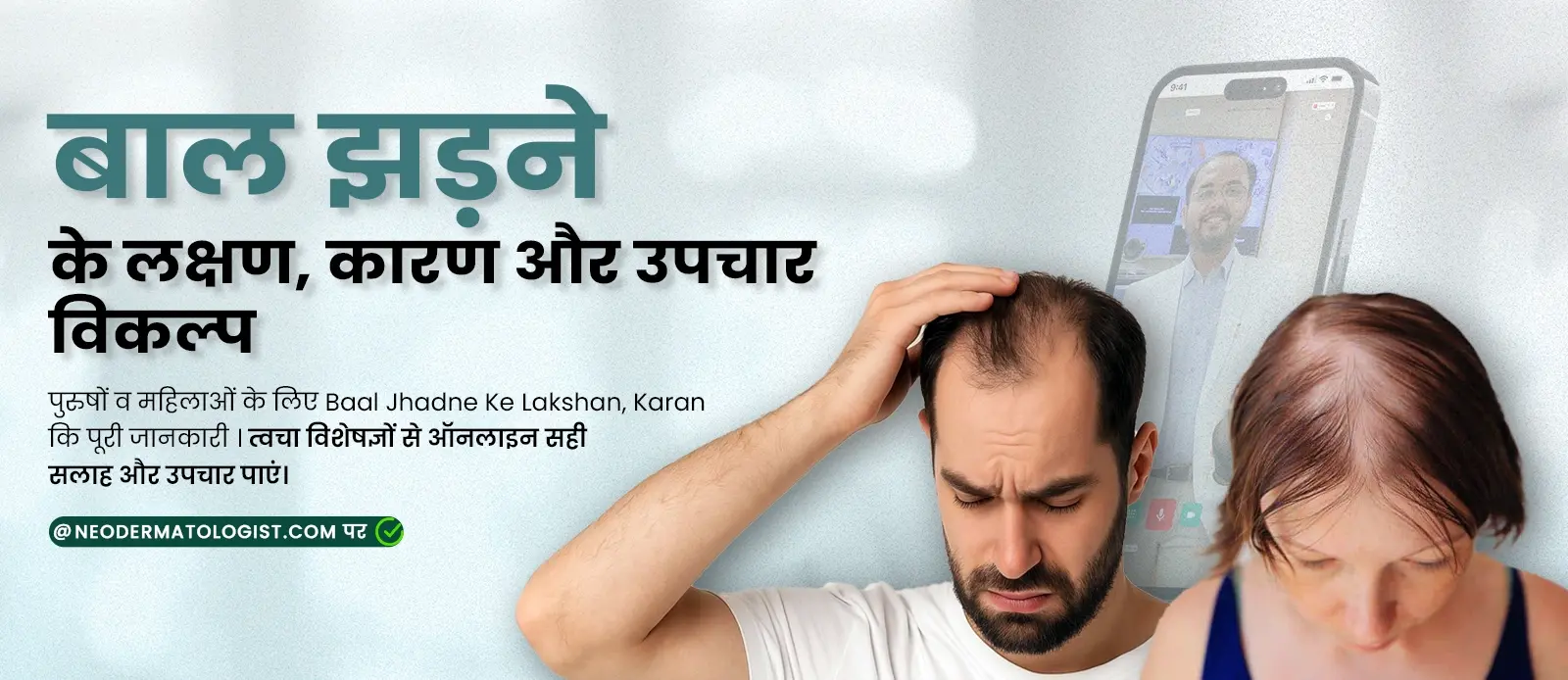
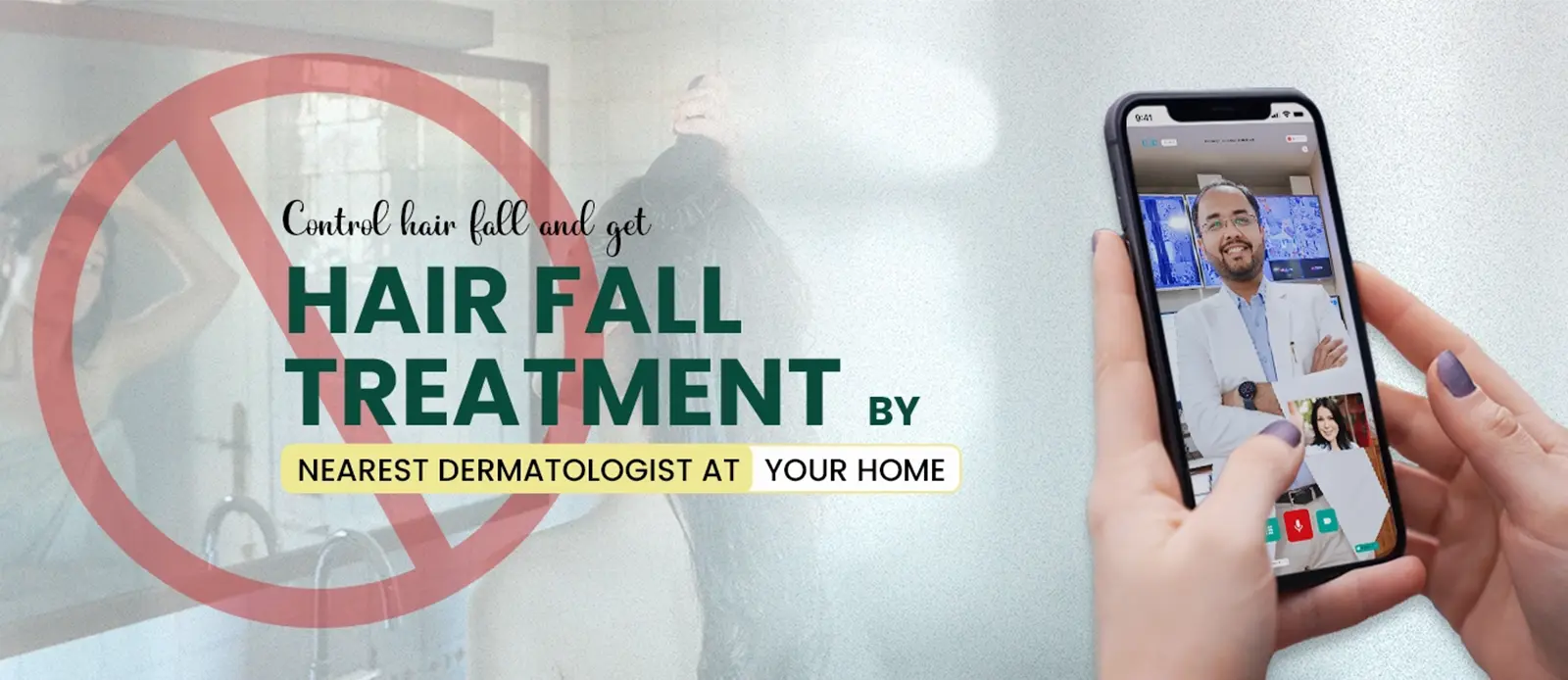
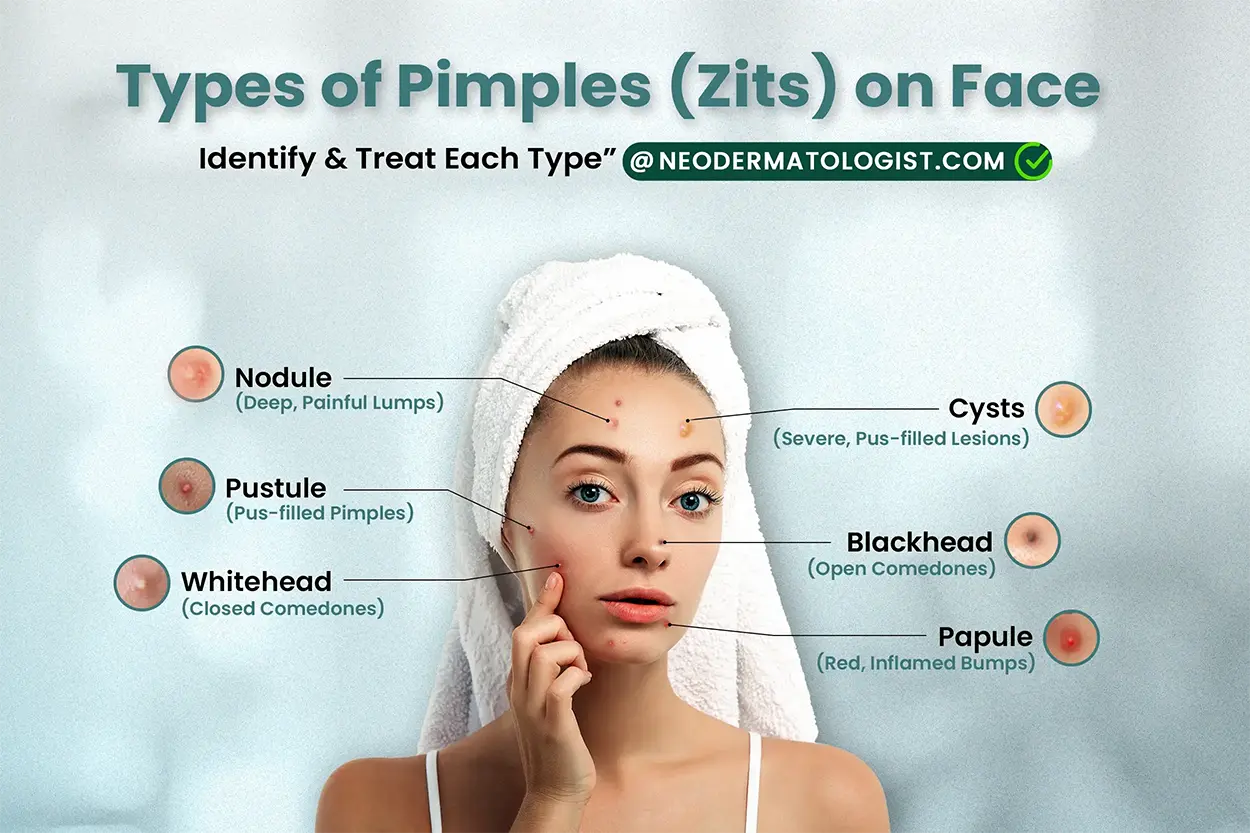

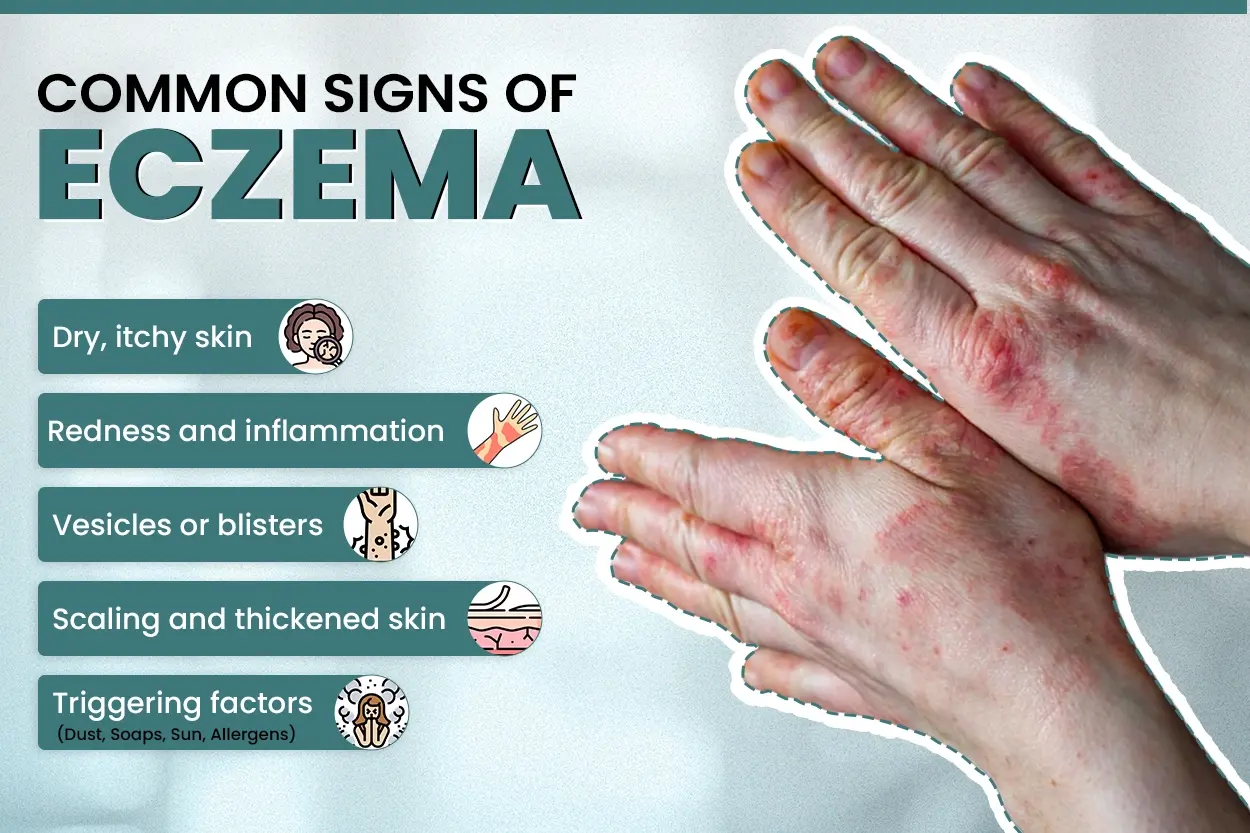

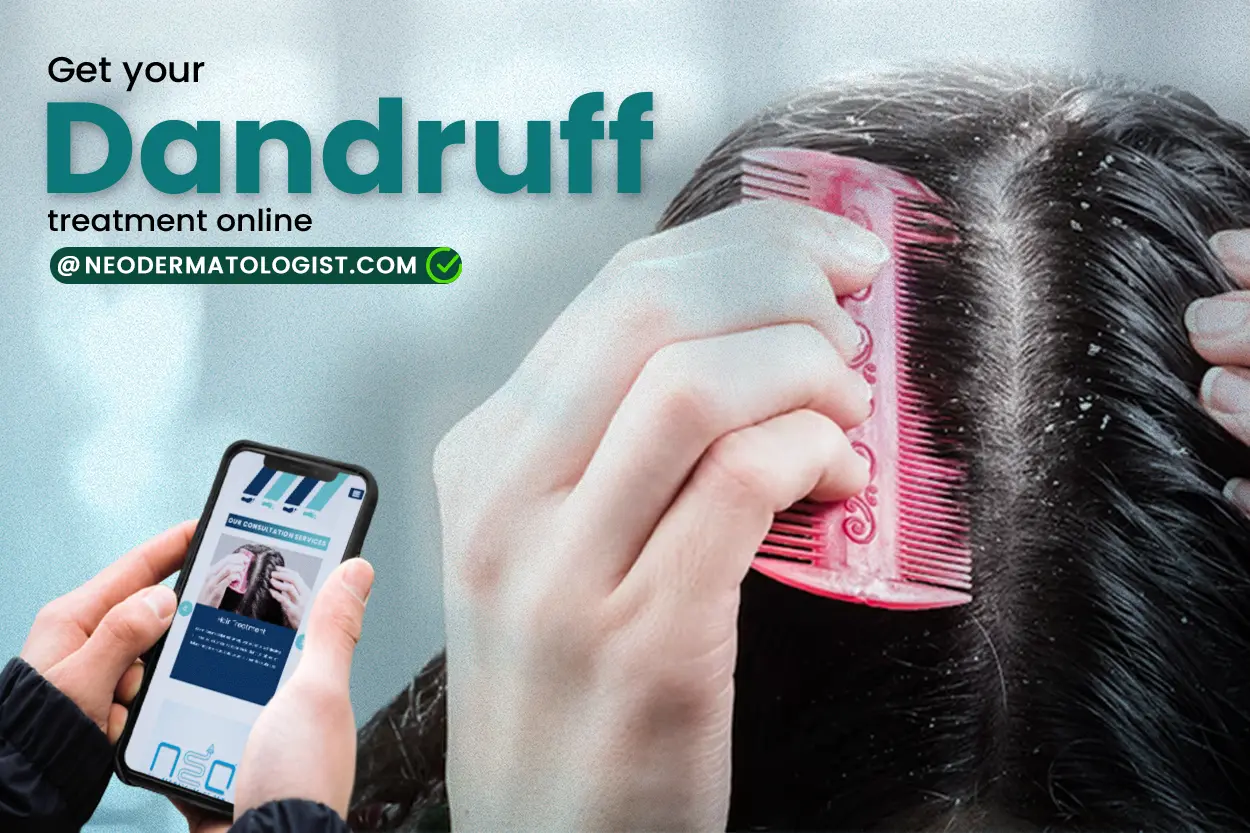
















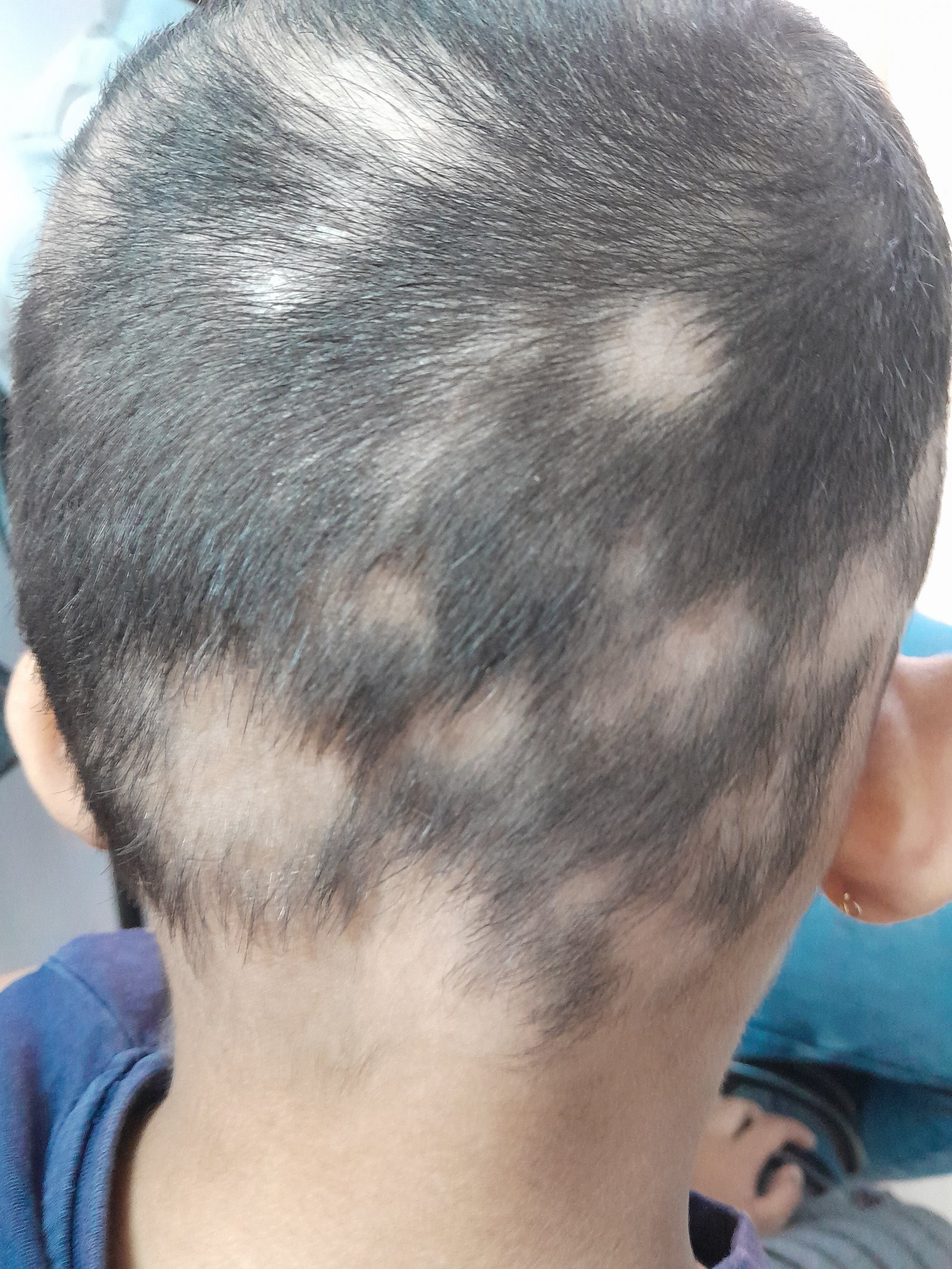
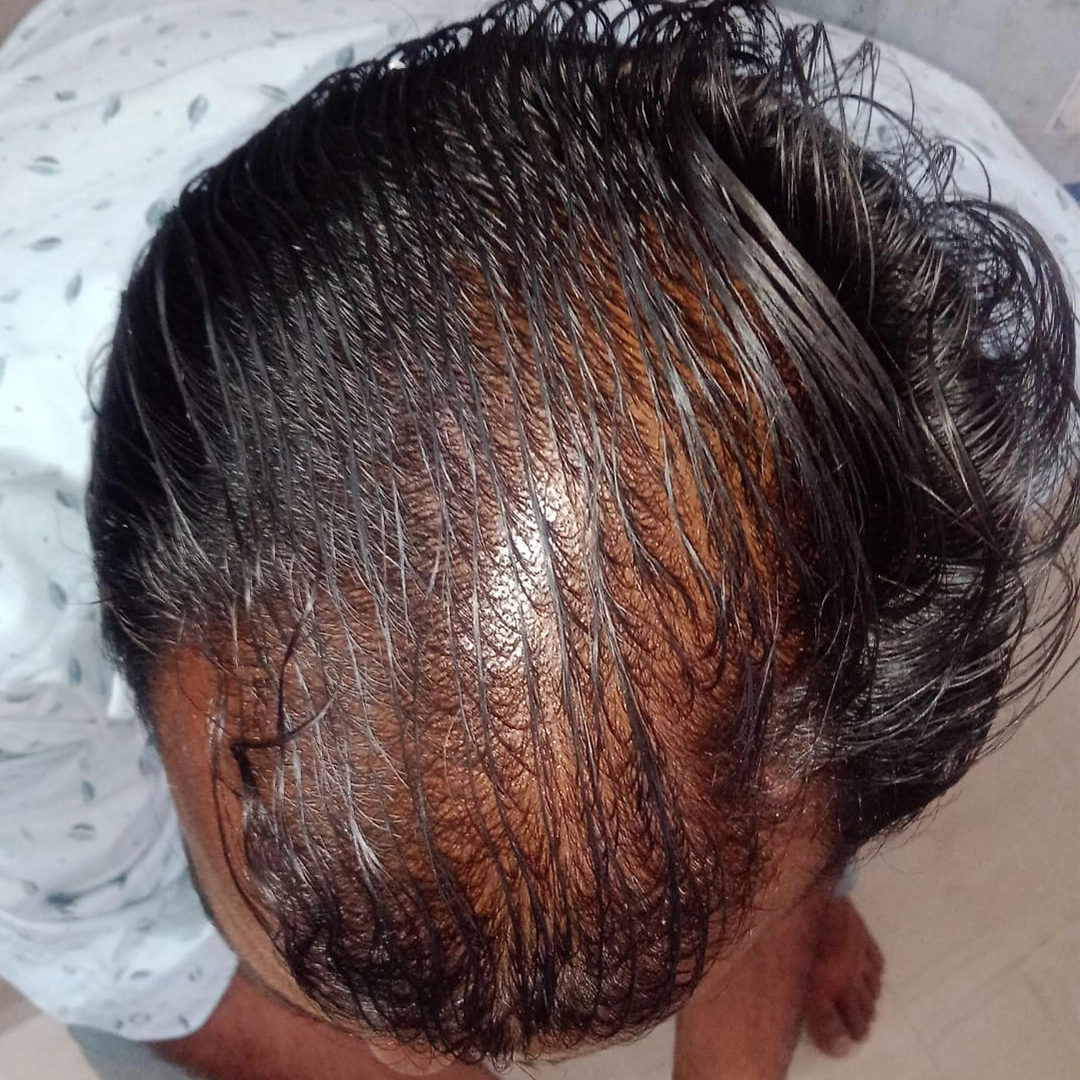
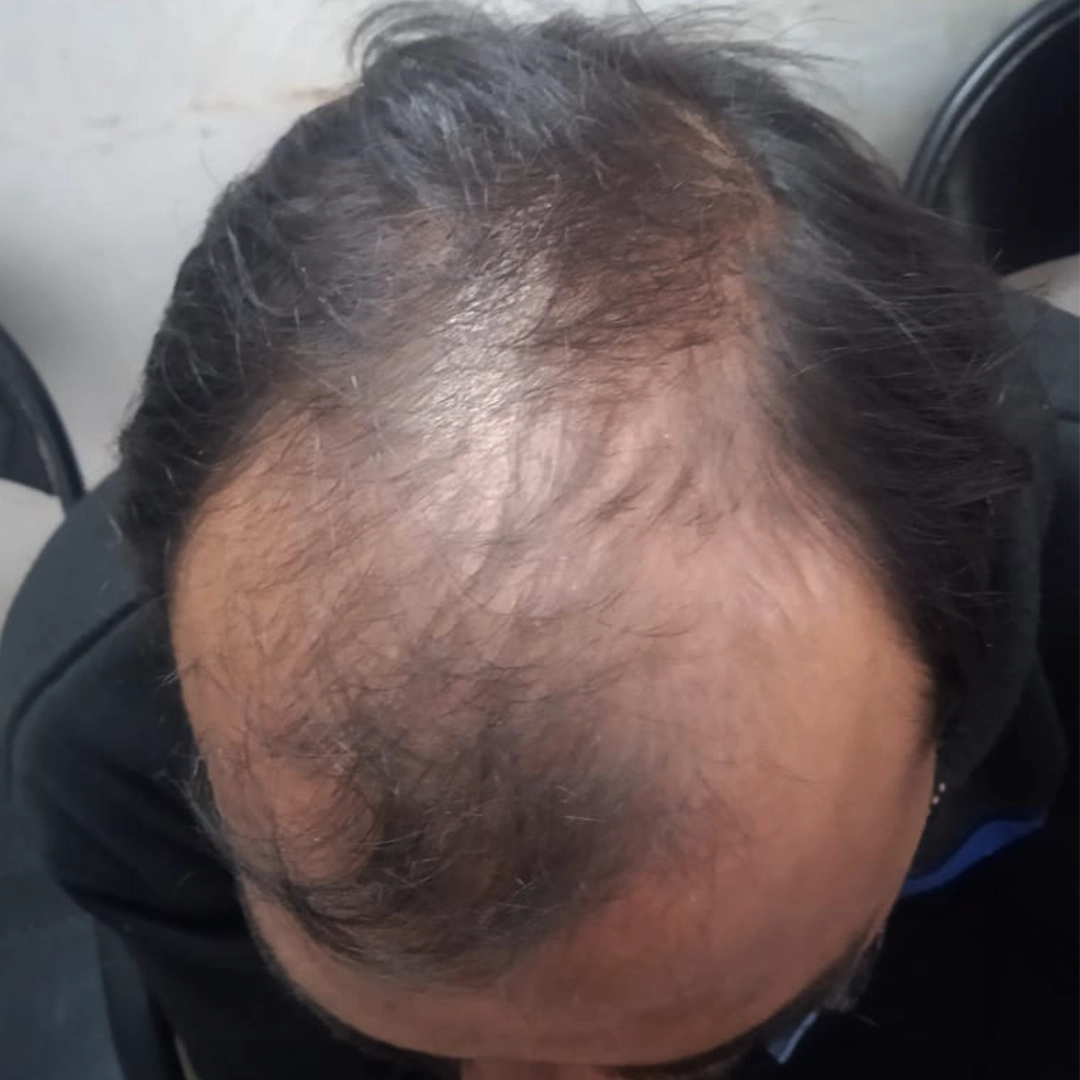
Comments
Nirali Mehta
Awesome post! You provided such a clear explanation of what causes hair loss and the treatment options available. I especially loved how you highlighted the importance of gentle hair care, nutrition, and when it’s time to see a dermatologist. It’s really informative and easy to follow!
Post a comment